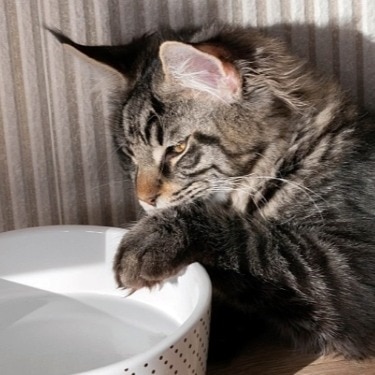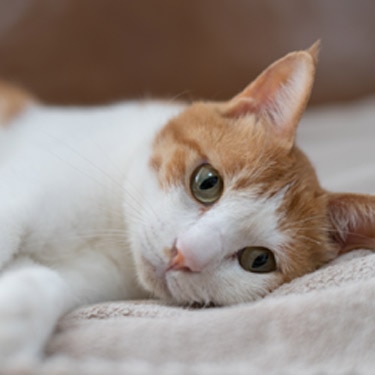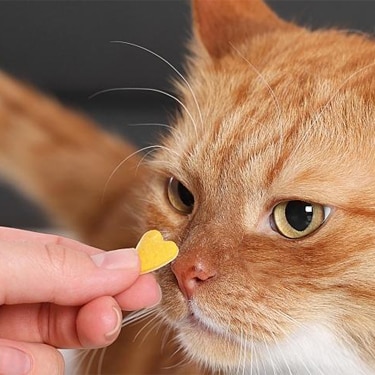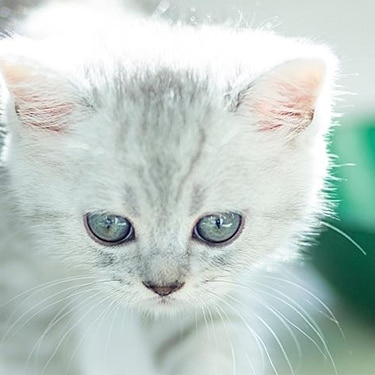
-
Find the right food for your petTake this quiz to see which food may be the best for your furry friend.Find the right food for your petTake this quiz to see which food may be the best for your furry friend.Featured products
 Adult Healthy Cuisine Roasted Chicken, Carrots & Spinach Stew Dog Food
Adult Healthy Cuisine Roasted Chicken, Carrots & Spinach Stew Dog FoodDelicious roasted chicken paired with tender vegetables in a succulent stew
Shop Now Adult 7+ Healthy Cuisine Roasted Chicken, Carrots & Spinach Stew Dog Food
Adult 7+ Healthy Cuisine Roasted Chicken, Carrots & Spinach Stew Dog FoodDelicious roasted chicken paired with tender vegetables in a succulent stew
Shop Now Adult Healthy Cuisine Hearty Beef, Carrots & Peas Stew Dog Food
Adult Healthy Cuisine Hearty Beef, Carrots & Peas Stew Dog FoodHearty beef paired with tender vegetables in a savory stew
Shop NowFeatured products Adult Turkey & Liver Entrée Cat Food
Adult Turkey & Liver Entrée Cat FoodPrecisely balanced nutrition with the delicious taste of minced turkey & liver to help fuel the energy needs of cats during the prime of their life
Shop Now Adult 7+ Indoor Chicken Recipe Cat Food
Adult 7+ Indoor Chicken Recipe Cat FoodSupports energy level and beautiful fur in mature indoor cats
Shop Now Senior Vitality Adult 7+ Tuna & Vegetables Stew
Senior Vitality Adult 7+ Tuna & Vegetables StewImproves Everyday Ability to Get Up & Go
Shop Now -
Dog
- Dog Tips & Articles
-
Health Category
- Weight
- Food & Environmental Sensitivities
- Urinary
- Digestive
- Joint
- Kidney
-
Life Stage
- Puppy Nutrition
- Adult Nutrition
- Senior Nutrition
Cat- Cat Tips & Articles
-
Health Category
- Weight
- Skin & Food Sensitivities
- Urinary
- Digestive
- Kidney
-
Life Stage
- Kitten Nutrition
- Adult Nutrition
Featured articles What Is Littermate Syndrome? Pet Adoption Guide
What Is Littermate Syndrome? Pet Adoption GuideLearn more about littermate syndrome in dogs and cats and how to successfully navigate adoption and early socialization processes.
Read More How to Properly Mix Wet & Dry Pet Foods
How to Properly Mix Wet & Dry Pet FoodsAn Orange cat eating from a bowl filled with mixed food
Read More The Science Behind Our Love for Pets
The Science Behind Our Love for PetsLearn the scientific reasons why we have such strong connections with our pets, and what science says about the love between humans and our furry friends.
Read More -
Digestive health for cats
Digestive health for cats
What are cat digestive issues?
A digestive (or GI) disorder is any health situation that prevents your cat from properly digesting food, or alters the rate that food passes through their digestive tract. Don't ignore the signs! If your furry friend is showing symptoms of digestive disorders, seek immediate advice from your veterinarian.

Signs your cat may have a digestive issue
The most common signs of cat stomach problems and digestive disorders are soft stools or diarrhea. You may also notice some or all of the following signs in your cat.




Signs your cat may have a digestive issue
The most common signs of cat stomach problems and digestive disorders are soft stools or diarrhea. You may also notice some or all of the following signs in your cat.




Examples of common digestive disorders
Digestive upsets can happen for a variety of reasons, and all of them can make your cat feel under the weather. Remember, that diarrhea can be difficult to spot in cats that toilet outside. If you suspect your cat is having issues it’s worth providing a litter tray so that you can see what’s going on. Below are some of the more common digestive problems we see in cats.


This is the most common cause of an ‘upset stomach’ in cats. It usually consists of vomiting and diarrhea that begins suddenly. It can be caused by lots of things like eating something unsavoury (or as many cats love to do, eating half a mouse and leaving the rest for us to find!), parasites, viruses and hairballs, to name but a few.
Unlike the sudden onset upset we just mentioned, chronic enteropathies are slower to appear and tend to last a long time. Diarrhea and weight loss are common signs. Again, it can be caused by many different things such as adverse food reactions, immune reactions and genetics.
The colon is part of the large bowel and when this gets inflamed it’s called colitis. It’s usually very characteristic and most cats show the same signs - looking like they urgently need to have a poop, they might strain to have a poop but not much comes out, and one of the classic signs of colitis is fresh blood and/or slimy mucus in the stools.
The same as in humans, when cats are constipated, they find pooping difficult and they might go to the toilet much less frequently. Constipation can be caused by lots of things. Eating bones, feathers and fur can make the stools hard and difficult to pass, the presence of lots of hair, especially in long-haired cats or a sluggish bowel will also mean that the stools are dry and difficult to shift. Some breeds like the Siamese are more prone to a sluggish bowel than others. This can result in a condition called megacolon.
This is a complex condition in cats and can be difficult to diagnose with vague signs. These signs include vomiting, lethargy and lack of appetite. In cats it can seem to come and go and often goes hand in hand with other problems like adverse food reactions and inflammatory bowel disease.
Cats can react badly to certain foods for a number of reasons and together we call these adverse food reactions. True food allergies are rarer than people think and they tend to be caused by proteins in foods such as chicken, fish and milk. Food allergies can cause vomiting and diarrhea and also skin issues like itchiness and excessive grooming.
How can you help?
First, if you suspect your cat is suffering from a digestive disorder, talk to your vet about treatments that may be able to help. You can further help your cat by helping reduce the amount of stress triggers in their environment with some of these suggestions.


Stick with a routine
Changes to your furry friend’s environment or routine can lead to GI upset. Providing your cat with a calm, safe environment – as well as some regular playtime – can help your cat’s anxiety.


Consider their nutrition
Foods made with highly digestible ingredients can be gentle on upset tummies. Ask your veterinarian about switching your cat’s food and how to do it without upsetting your cat’s stomach any further.
How can you help?
First, if you suspect your cat is suffering from a digestive disorder, talk to your vet about treatments that may be able to help. You can further help your cat by helping reduce the amount of stress triggers in their environment with some of these suggestions.


Stick with a routine
Changes to your furry friend’s environment or routine can lead to GI upset. Providing your cat with a calm, safe environment – as well as some regular playtime – can help your cat’s anxiety.


Consider their nutrition
Foods made with highly digestible ingredients can be gentle on upset tummies. Ask your veterinarian about switching your cat’s food and how to do it without upsetting your cat’s stomach any further.
Related products

Metabolic Treats to help support healthy weight loss and weight maintenance, and are a great complement for cats being fed other Prescription Diet weight loss or maintenance feline food.

Clinical nutrition formulated to help cats lose weight and manage blood sugar

Clinical nutrition formulated to help cats lose weight and help manage blood sugar

Treats for cats with food sensitivities, related skin conditions and sensitive stomachs
Related articles

Is wet food enough water for cats? Here's what to know about cats and hydration if your cat doesn't drink water but eats wet food.

Learn all about immune system support for cats, including the best vitamins for cats' immune systems, essential antioxidants for cats and more.

You know balanced nutrition is important, but what vitamins do cats need? Discover essential cat vitamins and their role in health and well-being.

Can kittens eat adult cat food? Discover kitten nutrition basics and what to do if your kitten's eating adult cat food to put them on the right track.

